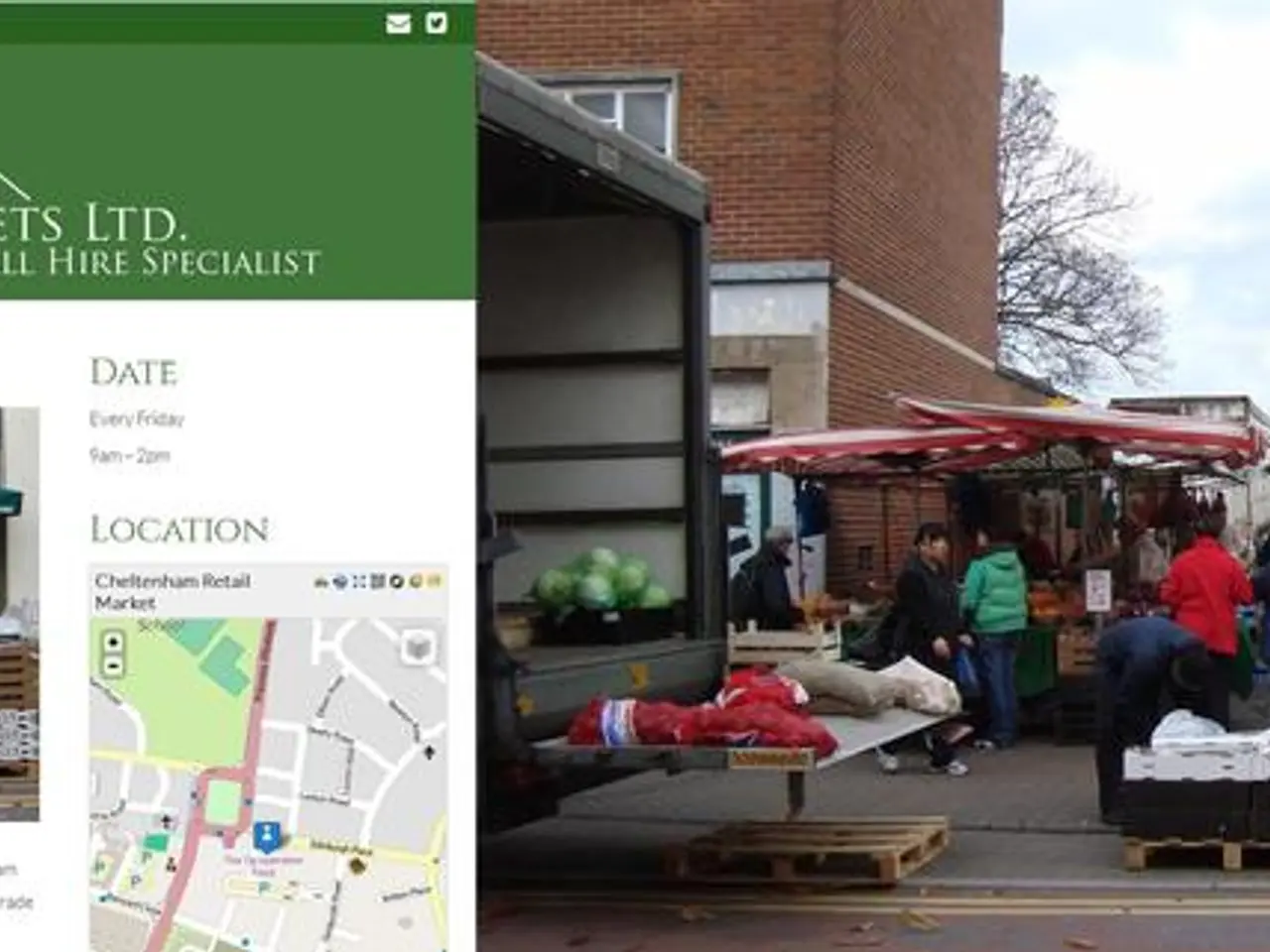Judge Declines to Temporarily Halt Injunction on Beneficial Ownership Information (BOI) Report
A judicial figure in the U.S. District Court for the Eastern District of Texas has upheld a temporary block on the enforcing of the Corporate Transparency Act (CTA) by the Financial Crimes Enforcement Network (FinCEN), as the government's appeal proceeds through the court system.
The government's appeal stems from Judge Amos Mazzant's December 3 judgement, which declared the CTA to be unconstitutional.
Original Ruling
In the legal dispute of Texas Top Cop Shop, Inc., et al. v. Garland, et al., Judge Mazzant, an appointee of former President Obama, granted the request by the National Federation of Independent Business (NFIB) for a temporary restraining order, barring the Department of Treasury from enforcing the CTA's reporting obligations. Since NFIB and its nearly 300,000 members were involved in the case, the judge extended the blockage of enforcement across the nation.
In his 74-page judgment, Judge Mazzant stated, "Despite trying to reconcile the CTA with the Constitution at every opportunity, the government fails to present a viable theory that the CTA falls within Congress's lawmaking powers. Despite the court's constitutional deference to Congress, the CTA seems to be unconstitutional."
FinCEN's Response
Following the ruling, FinCEN posted a statement on its website that "the government maintains, in agreement with the determinations of the U.S. District Courts for the Eastern District of Virginia and the District of Oregon, that the CTA is constitutional."
Nonetheless, FinCEN noted, "As this litigation evolves, FinCEN will adhere to the order issued by the U.S. District Court for the Eastern District of Texas for as long as it remains in effect." The agency also mentioned that companies could continue to voluntarily submit beneficial ownership information reports.
The Government's Response
The government filed an appeal on December 5, 2024, with the U.S. Court of Appeals for the Fifth Circuit.
A week later, on December 11, the government filed a Motion to Stay Preliminary Injunction Pending Appeal. Essentially, the government asked the court to lift the injunction during the appeal process—this would have meant that normal operations could continue, and the original deadline would still apply.
As part of its motion, the government argued that if the court did not grant the stay by December 12 or 13, the government would request the same relief in the Fifth Circuit Court of Appeals.
The Eastern District of Texas's Ruling, Part II
Following various legal maneuvers, Judge Mazzant issued a ruling on December 17 in the U.S. District Court for the Eastern District of Texas, denying the government's request for a stay of the injunction.
Judge Mazzant noted that when determining whether to grant a stay, district courts must consider four factors:
- whether the applicant has demonstrated a substantial likelihood of success on the merits;
- whether the applicant will be subject to irreparable harm without a stay;
- whether granting a stay will cause significant harm to the other parties involved; and
- where the public interest lies.
In assessing the first factor, Judge Mazzant concluded, "In the court's earlier Order enjoining the CTA and Reporting Rule, both were found to be highly likely unconstitutional; the plaintiffs have thus fulfilled their duty to demonstrate a significant likelihood of success on the merits. The government has not."
However, even if the government had a strong case on merit, Judge Mazzant found that the factors did not strongly support granting a stay. The judge subsequently ruled, "the court will not stay its order enjoining enforcement of the CTA and Reporting Rule."
The Fifth Circuit's Ruling, Part II
As promised, the government filed an emergency motion with the U.S. Court of Appeals for the Fifth Circuit for an immediate stay on December 13. In its motion, the government argued that "[t]he district court invalidated an Act of Congress that Congress deemed crucial to the government's efforts to combat money laundering, terrorism financing, human and drug trafficking, and other criminal activities."
Noting that the injunction was nationwide, the government argued, "The balance of harms clearly favors the government; any injunction, in any event, should have been limited to the specific companies mentioned in the district court."
A stay is particularly fitting in this situation, the government claimed, as "Despite the statute having been enacted in January 2021, the plaintiffs waited until this year to instigate this lawsuit, resulting in the district court's injunction taking effect just before the reporting deadline of January 1, 2025. Meanwhile, the government is intensely focusing on obtaining the information required for its enforcement efforts." In contrast, the government argued that any harm to the plaintiffs would be minimal.
The government requested the court to grant a stay or, at a minimum, to limit the injunction to the companies identified in the district court.
By letter of December 13, the court expedited the briefing schedule, requesting a final response by December 19. Therefore, a ruling could be made soon—reinstating the January 1, 2025, reporting deadline for companies established before January 1, 2024.
The Top Shop situation isn't the only legal issue in the courts. A federal court decision in a lawsuit filed by the National Small Business United (also known as the National Small Business Association, or NSBA) and Isaac Winkles determined that the CTA is unconstitutional. On March 1, 2024, U.S. District Judge Liles C. Burke of the Northern District of Alabama, Northeastern Division, appointed by Trump, wrote, "At times, Congress creates intelligent laws that contradict the Constitution." This situation, as he explained, serves as an example of this principle.
However, while the ruling in National Small Business United prohibits the U.S. Treasury from implementing the CTA against the defendants, it does not prevent enforcement against others—a substantial distinction from the Texas ruling. The government promptly appealed the ruling to the Eleventh Circuit, and the arguments were presented in October of this year. It's uncertain when a ruling might be issued.
Two other courts—the United States Court of Appeals for the Fourth Circuit and the United States Court of Appeals for the Ninth Circuit—also have CTA case appeals pending on their dockets.
Spending Bill
Subsequently, this week, Congressional leaders unveiled the text of a proposed funding bill meant to fund the government until March 14, 2025. Included in the 1,547-page document were provisions to postpone the BOI reporting requirements under the CTA. As drafted, the bill would alter the reporting date for existing entities to January 1, 2026 (in contrast to the initial January 1, 2025).
Republicans maintain a slight advantage in the House, requiring Democratic support to pass the bill—House Speaker Mike Johnson (R-La.) appeared convinced he had it—until President-elect Trump intervened. The duo issued a joint statement on Vice President-elect Vance's X (formerly Twitter) account, advocating for a more straightforward spending package.
In a separate post on Truth Social, Trump cautioned against supporting the bill, stating, "Any Republican who is foolish enough to engage in such behavior should, and will, face primaries."
Unfortunately, time is running out. If Congress fails to reach an accord by December 20, however, there will be a government shutdown, and all non-essential government functions must cease.
- In response to Judge Mazzant's ruling, the BOI also stated that they would continue to accept voluntary beneficial ownership information reports, despite the temporary injunction on the CTA enforced by FinCEN.
- The government's appeal against the CTA injunction, filed in the U.S. Court of Appeals for the Fifth Circuit, argued that a stay of the injunction was necessary to prevent significant harm to its efforts to combat money laundering and other criminal activities.
- The proposed funding bill unveiled by Congressional leaders included provisions to postpone the BOI reporting requirements under the CTA, altering the reporting date for existing entities to January 1, 2026.




